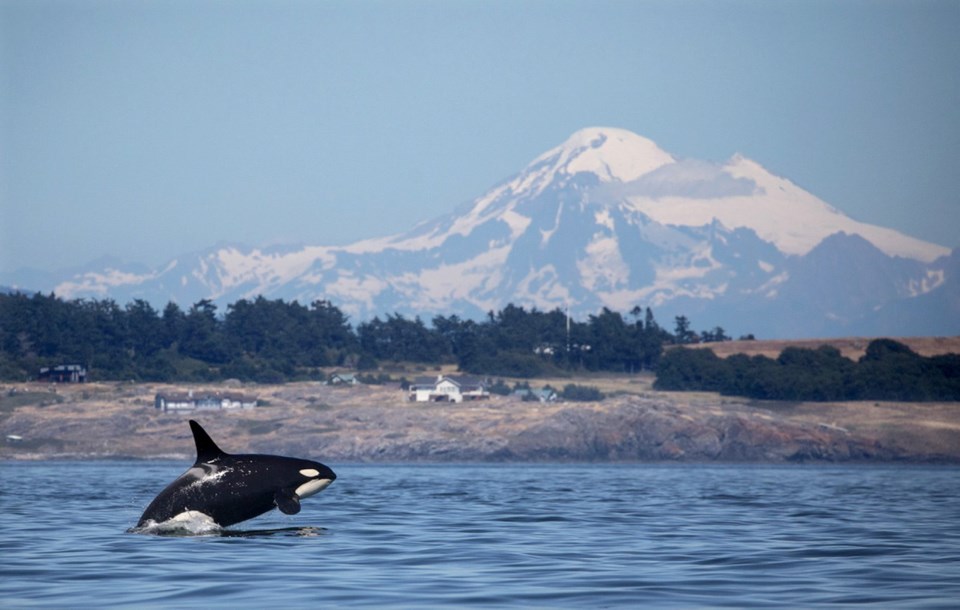Southern resident killer whales made their first appearance in the Salish Sea on Canada Day after more than two months with only a brief sighting off the west coast of Vancouver Island.
The orcas are typically seen in the strait between the Island and Washington state starting in May, but their behaviour has been changing in recent years.
The southern residents, whose habitat ranges from California to Alaska, are returning to the Salish Sea later than they used to, prompting questions around the health of the species and the ecosystem they inhabit.
“It’s drastic,” said Kelley Balcomb-Bartok, communications director for the Pacific Whale Watch Association. “The expectation would be that K-pod would be here daily in May. There would be times there would be all three pods.”
The endangered southern resident killer whale population has dropped to 73 individuals as of December 2019, down from 98 in the mid-1990s. They’re grouped into three pods: J-pod, K-pod and L-pod.
Balcomb-Bartok is the son of Ken Balcomb, who founded the Center for Whale Research in Friday Harbor, Washington, which collects detailed demographic data on the three southern resident killer whale pods. Balcomb-Bartok grew up around whales and has spent decades working in the field. He remembers summer days with multiple sightings of the whales foraging and playing and listening to their blows at night, a stark contrast to this May and June, which brought just one short visit by the whales.
Members of J-pod were seen in the Strait of Georgia during a two-week period in April, with reports of the marine mammals off the coast of Campbell River and Nanaimo before they disappeared in mid-April, Balcomb-Bartok said.
The whales likely headed down to California, he said.
In late June, a few members of L-pod were briefly recorded peeking into the waters around Juan de Fuca Strait.
On June 29, some of K-pod was seen in Johnstone Strait off the east coast of northern Vancouver Island.
Two days later, they showed up in the Salish Sea, with sightings reported near Esquimalt Lagoon and San Juan Island.
To Balcomb-Bartok, the reason for the absence of the orcas, which feed on salmon, is clear.
“The decline of southern residents parallels the decline of chinook [salmon],” he said. “With the last two years being no fish, there are no whales.”
Susan Berta of the Orca Network also points to a dwindling food source as the reason why the orcas are changing their behaviour.
“It’s all about the food source. They’re going wherever they can to find salmon,” she said.
Their absence means researchers have a lack of data to monitor the health of the species and track births and deaths.
Berta said no deaths or births have been recorded so far this year, but most of L-pod still hasn’t been seen.
“It’s hard for the Centre for Whale Research, which would have seen every resident orca and would have known all births and deaths.
“That’s a huge change right there.”
Berta hopes governments will turn their attention to addressing the dwindling chinook salmon run in the Fraser River.
Salmon runs in the river have been on the decline for more than a decade. The population was devastated last year because of a massive landslide in the river, which prevented 89 per cent of early chinook salmon from reaching their spawning grounds.
Andrew Trites, director of the University of British Columbia’s Marine Mammal Research Unit, said there is not enough data to say definitely why the whales are taking longer to return to the Salish Sea in summer.
While it could be due to a lack of food, Trites said other theories are that the orcas are avoiding the area because of disturbances from vessels or because the death of their leader a few years ago has caused changes in behaviour.
Whatever the reason, their late arrival in the Salish Sea this year is consistent with the past several years, Trites said. “Maybe this is the new normal.”



